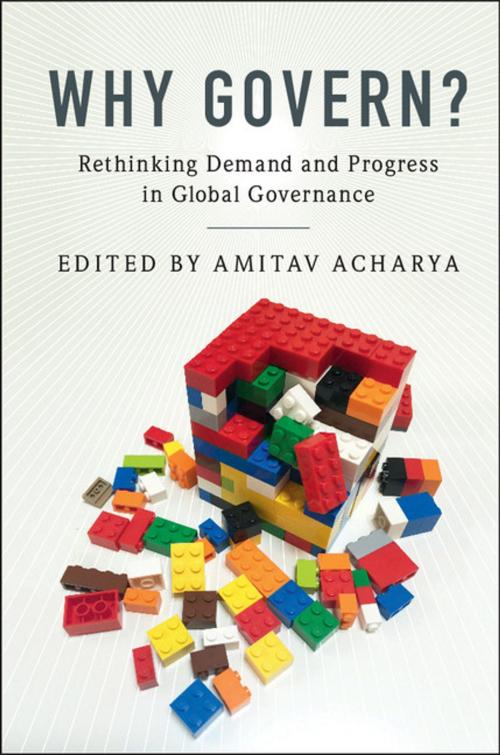Why Govern?
Rethinking Demand and Progress in Global Governance
Nonfiction, Social & Cultural Studies, Political Science, International, International Relations| Author: | ISBN: | 9781316762257 | |
| Publisher: | Cambridge University Press | Publication: | August 22, 2016 |
| Imprint: | Cambridge University Press | Language: | English |
| Author: | |
| ISBN: | 9781316762257 |
| Publisher: | Cambridge University Press |
| Publication: | August 22, 2016 |
| Imprint: | Cambridge University Press |
| Language: | English |
The system of international cooperation built after World War II around the UN is facing unprecedented challenges. Globalization has magnified the impact of security threats, human rights abuses, mass atrocities, climate change, refugee, trade and financial flows, pandemics and cyberspace traffic. No single nation, however powerful, can solve them on its own. International cooperation is necessary, yet difficult to build and sustain. Rising powers such as China, India, and Brazil seek greater leadership in international institutions, whose authority and legitimacy are also challenged by a growing number of civil society networks, private entities, and other non-state actors. Against this backdrop, what is the future of global governance? In this book, a group of the leading scholars in the field provide a detailed analysis of the challenges and opportunities facing global cooperation. The book offers a comprehensive and authoritative guide for scholars and practitioners interested in multilateralism and global order.
The system of international cooperation built after World War II around the UN is facing unprecedented challenges. Globalization has magnified the impact of security threats, human rights abuses, mass atrocities, climate change, refugee, trade and financial flows, pandemics and cyberspace traffic. No single nation, however powerful, can solve them on its own. International cooperation is necessary, yet difficult to build and sustain. Rising powers such as China, India, and Brazil seek greater leadership in international institutions, whose authority and legitimacy are also challenged by a growing number of civil society networks, private entities, and other non-state actors. Against this backdrop, what is the future of global governance? In this book, a group of the leading scholars in the field provide a detailed analysis of the challenges and opportunities facing global cooperation. The book offers a comprehensive and authoritative guide for scholars and practitioners interested in multilateralism and global order.















